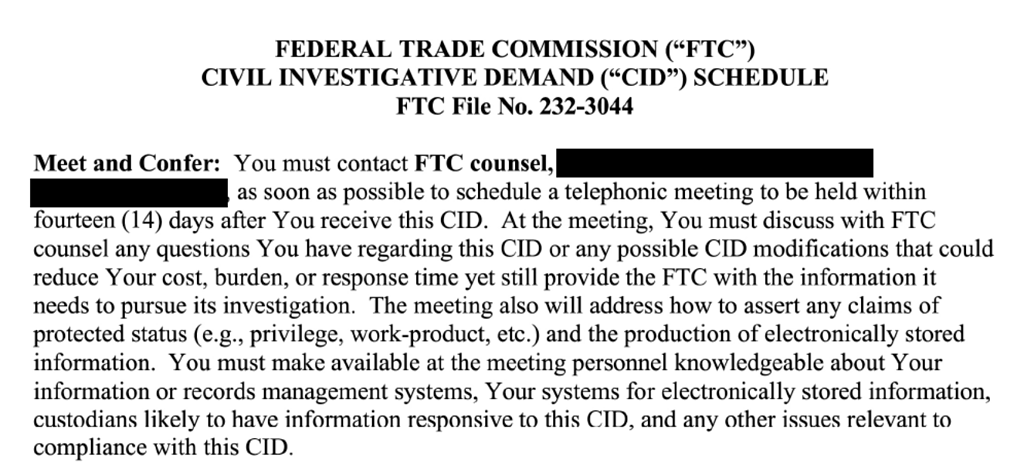Is Your Marriage Ending Silently? Recognizing The Warning Signs

Table of Contents
Decreased Communication and Emotional Distance
A significant indicator of a silently failing marriage is a decline in meaningful communication and the development of emotional distance. This isn't necessarily about yelling matches; it's the subtle erosion of connection that's most damaging.
The Absence of Meaningful Conversations
Deep, heartfelt conversations are the bedrock of any strong relationship. If these are absent, it's a major red flag.
- Conversations are superficial: Discussions revolve around daily trivialities, lacking depth or emotional investment.
- Important topics are avoided: Significant issues are swept under the rug, preventing necessary discussions and problem-solving.
- Conversations feel forced or strained: Instead of easy flow and genuine connection, interactions feel like an obligation.
- Lack of genuine interest in each other's lives: One or both partners show little curiosity or concern for the other's thoughts, feelings, and experiences.
Open communication is vital for a healthy marriage. When this breaks down, it creates a chasm that's difficult to bridge. The inability to share thoughts and feelings freely fosters resentment and emotional disconnect.
Emotional Withdrawal and Lack of Intimacy
Emotional distance often manifests in subtle ways. It's not always about grand gestures; sometimes, it's the little things that speak volumes.
- Reduced physical affection: Hugs, kisses, and other forms of physical intimacy decrease significantly.
- Less eye contact: The shared gaze that once connected you now feels absent or fleeting.
- Feeling unheard or unseen: One partner feels their opinions and emotions are dismissed or ignored.
- Lack of shared emotional experiences: The sense of togetherness and shared vulnerability diminishes, resulting in a feeling of isolation within the relationship.
Emotional intimacy is the glue that binds a couple together. Without it, the relationship becomes hollow and unsatisfying, leading to a gradual drift apart. The lack of emotional connection is a silent killer of many marriages.
Shifting Roles and Responsibilities
An imbalance in household tasks and responsibilities can be a significant strain on a marriage. When one partner feels overburdened, resentment builds, creating cracks in the foundation.
Unequal Burden Sharing
Fairness is key to a successful partnership. When one partner consistently carries more weight, it's a recipe for disaster.
- One partner consistently carries more weight: This imbalance can manifest in childcare, household chores, financial management, or emotional support.
- Resentment builds: The feeling of being taken advantage of can lead to bitterness and hostility.
- Lack of collaboration in decision-making: Important decisions are made unilaterally, leaving one partner feeling excluded and powerless.
Teamwork and a fair division of labor are essential for marital harmony. When one partner feels unfairly burdened, it creates a sense of injustice that can erode trust and affection.
Growing Independence and Separate Lives
Couples drifting apart can subtly signal a silently dissolving marriage. The shared experiences and goals that once defined the relationship begin to fade.
- Decreased shared activities: Couples spend less time together engaging in activities they once enjoyed.
- Separate social circles: Partners develop independent social lives, rarely including each other.
- Different routines and schedules: Lives become increasingly disconnected due to differing work hours, hobbies, or other commitments.
- Lack of shared goals: The once-shared vision for the future fades, replaced by individual aspirations and priorities.
Shared interests and quality time are vital for maintaining a strong bond. When these diminish, the connection weakens, and the marriage becomes vulnerable.
Increased Conflict and Negative Interactions
Constant bickering, criticism, and a lack of respect are clear indicators of a struggling marriage. These negative interactions chip away at the foundation of trust and intimacy.
Constant Bickering and Criticism
Frequent arguments and negativity are toxic to a relationship. They erode the sense of safety and security that a marriage should provide.
- Critical comments: Constant negativity and judgment undermine the partner's self-esteem.
- Name-calling: Using hurtful words erodes respect and creates a climate of hostility.
- Passive-aggressive behavior: Indirect expressions of anger or resentment cause simmering tension.
- Unresolved conflicts: Issues are left unaddressed, festering and creating further distance.
Constructive conflict resolution is crucial for marital success. Learning to communicate effectively and address disagreements respectfully can prevent escalating conflicts.
Lack of Respect and Appreciation
Showing appreciation and respect are foundational to any healthy relationship. When these elements fade, the marriage becomes vulnerable.
- Taking each other for granted: Partners fail to recognize and value the contributions of their spouse.
- Disregarding opinions or feelings: One partner consistently dismisses the thoughts and emotions of the other.
- Lack of gratitude: Expressing thankfulness and appreciation becomes rare or absent.
- Frequent complaints: Negativity and criticism outweigh expressions of affection and support.
Showing appreciation and respect is vital for maintaining a strong, loving marriage. It demonstrates that you value your partner and their contributions to the relationship.
Seeking External Validation and Escape
When a marriage is failing, partners may seek validation or escape outside the relationship. This can manifest in various ways.
Excessive Time Spent Alone or with Others
Spending excessive time alone or with others can signal a detachment from the marriage.
- Increased time on social media: Using social media as a substitute for real-life connection.
- Spending more time with friends or family than with the spouse: Prioritizing other relationships over the marital bond.
- Avoiding time together: Actively avoiding opportunities for quality time as a couple.
Maintaining a healthy balance between personal time and couple time is crucial. Excessive time spent away from the spouse can indicate a growing distance and lack of connection.
Increased Interest in Extramarital Activities
Infidelity is a serious breach of trust that can irrevocably damage a marriage. While not always outwardly apparent, changes in behavior can offer clues.
- Secretive behavior: Becoming secretive about activities or whereabouts.
- Unexplained absences: Frequently being away from home without clear explanation.
- Emotional distance: A noticeable decrease in emotional intimacy and connection.
- Changes in communication patterns: Avoiding open and honest communication.
If infidelity is suspected, seeking professional help from a marriage counselor or therapist is crucial.
Conclusion
A silently dissolving marriage can be devastating, but recognizing the warning signs early can make all the difference. By paying attention to communication patterns, shared responsibilities, conflict levels, and the search for external validation, you can identify potential problems and take steps towards addressing them. If you recognize these signs in your marriage, don't hesitate to seek professional help from a marriage counselor. Open communication and a willingness to work together are crucial for preventing your marriage from ending silently. Take action now and invest in saving your marriage. Don't let your marriage end silently.

Featured Posts
-
 Open Ai Faces Ftc Investigation Analyzing The Potential Impact On The Future Of Ai
Apr 28, 2025
Open Ai Faces Ftc Investigation Analyzing The Potential Impact On The Future Of Ai
Apr 28, 2025 -
 Espn Staffs Sentimental Goodbye To Cassidy Hubbarth
Apr 28, 2025
Espn Staffs Sentimental Goodbye To Cassidy Hubbarth
Apr 28, 2025 -
 Supporters Of Luigi Mangione Their Views And Priorities
Apr 28, 2025
Supporters Of Luigi Mangione Their Views And Priorities
Apr 28, 2025 -
 Espn Predicts A Surprising Red Sox Outfield For 2025
Apr 28, 2025
Espn Predicts A Surprising Red Sox Outfield For 2025
Apr 28, 2025 -
 Boones Lineup Choices Impact On Aaron Judge And The Yankees
Apr 28, 2025
Boones Lineup Choices Impact On Aaron Judge And The Yankees
Apr 28, 2025
